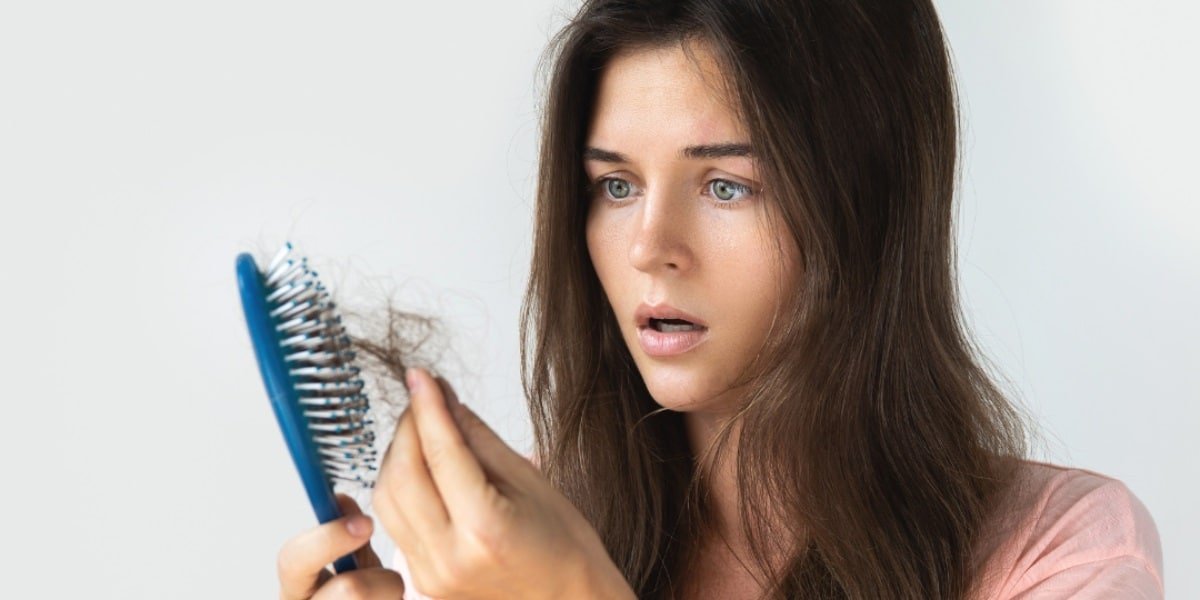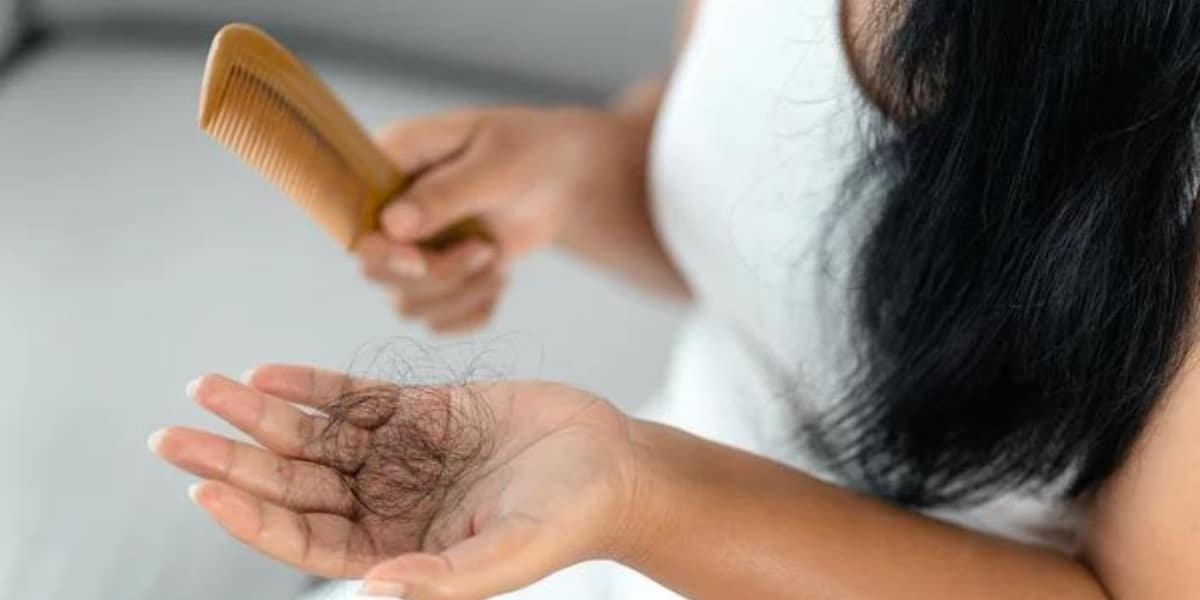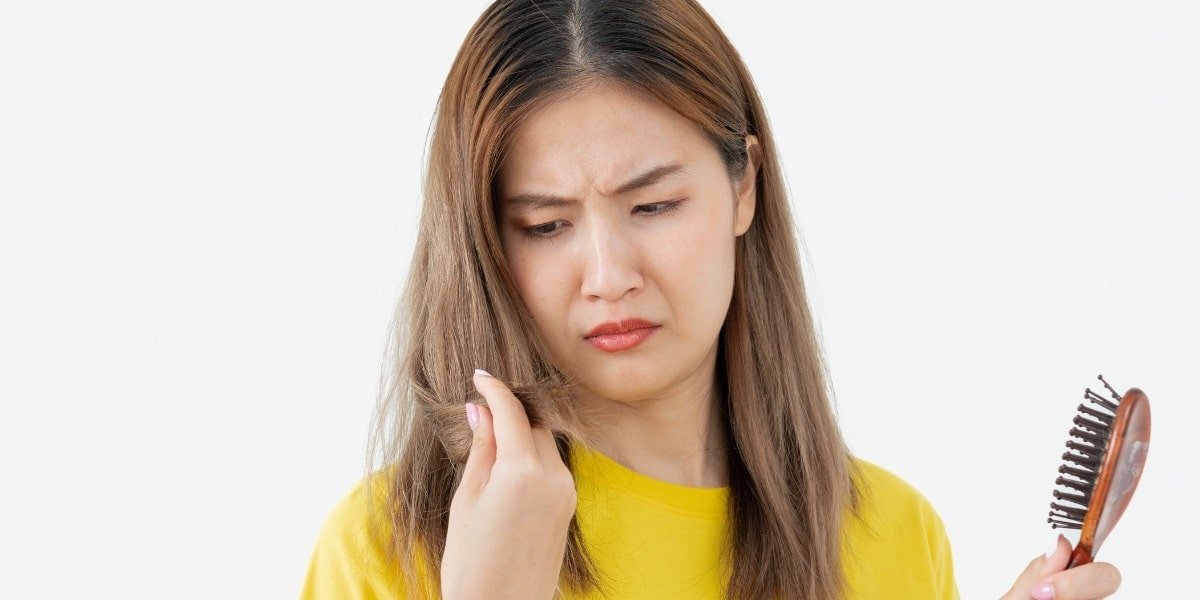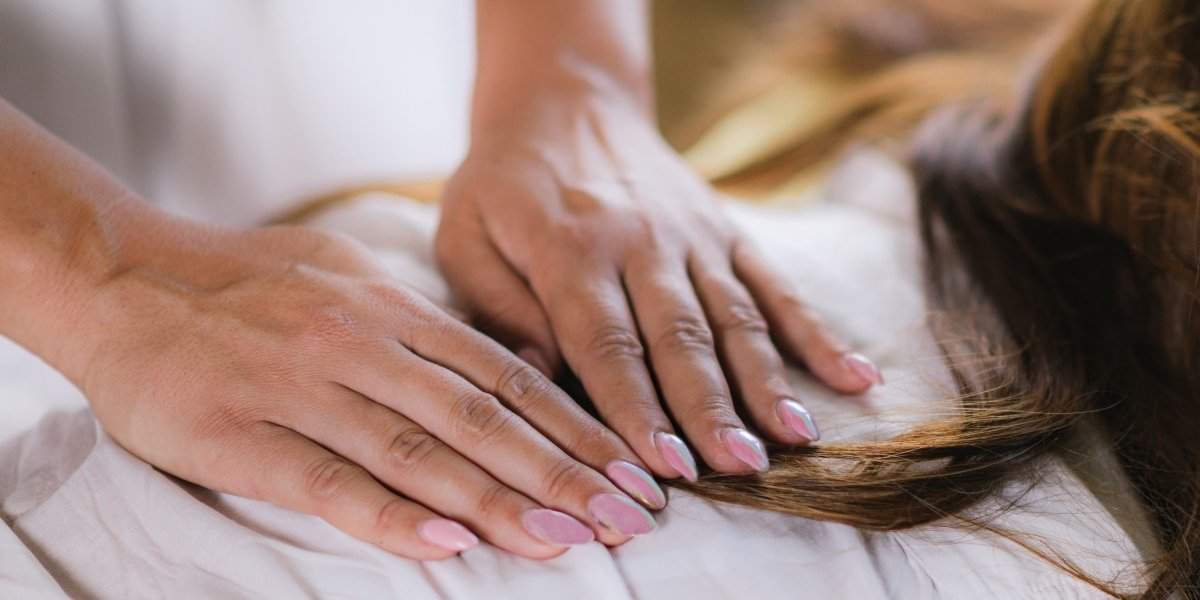Blog
Vitamin Deficiencies That Cause Hair Loss Revealed in 2024

Hair loss is a common issue that affects people of all ages, genders, and races. Many factors can contribute to hair loss, including genetics, hormones, stress, and poor nutrition. One nutrient that is often associated with hair loss is a lack of vitamins. We greatly rely on vitamins for our overall health and well-being. Your body needs an abundance of nutrients to function at a healthy level. But if it is hair loss that you’re trying to remedy, then it is important to know which vitamin deficiencies can cause hair loss.
Hair loss or hair thinning can be influenced by various factors; however, the school of thought that people are missing key nutrients in their diet is becoming a thought of the past. Key nutrients for maintaining healthy hair include vitamin D, iron, zinc, biotin (Vitamin B7), vitamin A, vitamin E, vitamin C, omega-3 fatty acids, protein, and B vitamins. Insufficient levels of these nutrients certainly can contribute to hair problems, such as hair loss, brittle hair, or weak hair.
The Importance of Vitamins for Hair Health
Vitamins play crucial roles in every stage of the hair growth cycle. They provide the nutrients that hair follicle cells need for healthy development and function. For example, vitamins facilitate processes like protein synthesis that are vital for producing hair protein strands. Antioxidant vitamins help protect hair cells from damaging oxidative stress. B vitamins aid cellular metabolism and growth.
You should be able to give your hair and body enough nutrients through a balanced diet. But how can your diet be connected to hair health? Francesca Nicholas, a registered nutritionist and clinician, explains:
“A healthy diet may help keep your hair shiny and strong. If you are not getting the correct nutrients from food, you may see the negative effects in your hair.”
When vitamin levels dip too low, hair follicles struggle to sustain healthy hair production. Nutrient deprivation interferes with their intricate processes, putting hair at risk. Deficiencies can trigger excessive shedding, slow growth, thinning, dull and dry strands, changes in texture, and patchy hair loss. Identifying and treating any vitamin deficiencies is key for nourishing your hair back to its former glory.
The Link Between Vitamin Deficiencies and Hair Loss
Extensive scientific research demonstrates clear connections between vitamin deficiencies and hair loss issues, especially thinning and excessive shedding. Let’s explore a few key findings:
- Multiple studies reveal that low levels of vitamins D, B12, and other micronutrients are more prevalent among those with thinning hair.
- Clinical trials demonstrate that replenishing deficient vitamin levels leads to significant improvement in hair density, shedding reduction, and other markers of hair growth and health.
- Biochemical studies outline the mechanisms through which vitamin deficiencies disrupt healthy hair follicle function, development, and hair protein production.
Some of the deficiencies are more common in men than women and vice versa. So, which vitamin deficiencies might be more common for you? An accredited nutritionist and clinician, Francesca Nicholas clarifies:
The most common vitamin deficiencies in men include:
- Vitamin D
- Vitamin B6
- Vitamin B12
- Folic acid
- Magnesium
- Calcium
- Iron
- Iodine
On the other hand, women often experience deficiencies in the following vitamins:
- Vitamin B12
- Iodine
- Iron
- Vitamin D
- Calcium
In addition to hair changes, vitamin deficiencies can also cause other symptoms that may provide clues to an underlying issue. General symptoms include extreme fatigue, unexplained weight loss, frequent illness, muscle weakness, bone/joint pain, loss of appetite, mouth ulcers, vision issues, and mood changes. Pay attention to such red flags.
If you’re experiencing these symptoms, it’s crucial to consult a healthcare provider for a proper diagnosis. Remember, you’re not alone, and help is available.
We know this is a lot to take in, especially if you’re already stressed about hair loss. The good news is that understanding the problem is the first step to finding a solution.
The 10 Vitamin Deficiencies
Hair depends on getting adequate amounts of many different vitamins. Deficiencies in the following 10 vitamins are often implicated as triggers for hair loss. Don’t worry if this sounds complicated; the key takeaway is that these vitamins are essential for your hair’s health:
1. Vitamin D and Hair Loss
Vitamin D deficiency can manifest as dry, brittle hair that breaks easily. Moderate to excessive shedding and thinning hair may also occur. Studies have even proven that low levels of vitamin D are also responsible for premature graying. Diagnosing vitamin D deficiency involves a simple blood test to check levels.
Treatment typically involves daily vitamin D supplementation, often around 2,000-4,000 IU. However, the dosage should be personalized and confirmed by a healthcare provider to avoid toxicity or interactions with other medications. Doctors recommend rechecking levels after 3 months of treatment. Other ways to restore vitamin D levels include:
- Increasing sunshine exposure for natural vitamin D production
- Eating more vitamin D-rich foods like fatty fish, egg yolks, fortified dairy
2. Vitamin A and Hair Loss
Deficiency in vitamin A can lead to noticeable thinning of hair and increased daily shedding. The regrowth period after hair loss episodes may also be prolonged. Dandruff flaking is another common symptom of low vitamin A levels. Doctors can diagnose deficiency through a blood test checking levels of vitamin A/retinol.
The good news is vitamin A deficiency can be reversed. Taking vitamin A tablets or capsules daily helps restore levels, though pregnant women should consult a doctor regarding safe dosages. Increasing vitamin A-rich orange and yellow vegetables like carrots, sweet potatoes, squash, green peppers and dark leafy greens in the diet provides natural sources. Cod liver oil is another option for obtaining vitamin A. With treatment, the hair thinning and shedding symptoms can be reduced over time.
3. Vitamin E and Hair
Inadequate vitamin E can manifest as increased daily hair shedding and progressive thinning of scalp hair. Dry, damaged strands prone to split ends and breakage may also indicate deficiency. Doctors diagnose low vitamin E through a blood test screening levels of vitamin E/alpha-tocopherol. Low vitamin E levels most often affect people with autoimmune diseases like psoriasis or alopecia areata.
Thankfully, vitamin E deficiency can be corrected. Taking daily vitamin E supplements helps increase levels. Consuming more vitamin E-rich foods like sunflower seeds, almonds, spinach, and avocado can provide dietary sources. Applying natural oils like olive oil and rosehip oil to hair and scalp provides additional benefits. With replenished vitamin E levels, hair shedding and damage can be minimized for thicker, healthier hair.
4. Vitamin C and Hair
Vitamin C deficiency can lead to:
- Dry, splitting hair
- Increased shedding
- Slow regrowth after hair loss episodes
- Brittle, breaking strands
Diagnosis involves screening vitamin C/ascorbic acid levels in the blood.
Daily vitamin C supplementation can correct deficiency. Try including in your diet more vitamin C-rich foods like citrus fruits, peppers, broccoli, and strawberries can also help restore levels. Topical vitamin C applications may provide additional benefits.
5. Folic Acid and Hair Loss
Folic acid, known also as vitamin B9, is important for facilitating cell division and growth. When the body has inadequate folic acid, it can impair the rapid cell division needed for the continual production of new hair by follicles. This slower cell production causes both increased hair loss and slowed regrowth after shedding episodes. Doctors can detect folic acid deficiency by testing blood levels and looking for values that could indicate that a deficiency is present.
The promising news is folic acid deficiency can be corrected through both diet and supplements. Taking a daily folic acid tablet can help restore adequate levels efficiently. Eating more folate-rich foods like leafy greens, citrus fruits, beans, and lentils can also bump up levels. With sufficient folic acid intake from these sources, healthy rapid cell division and hair follicle production are supported, nurturing optimal hair thickness and growth.
6. Biotin and Hair
Also known as vitamin B7, biotin is important for enzymatic reactions involved in amino acid and fat metabolism. Deficiency in biotin is associated with hair thinning and shedding. While supplementing with biotin may help correct an underlying deficiency, its benefits for treating hair loss in those without a deficiency are still under debate. The best sources of biotin are whole grains, eggs, nuts and seeds. Getting adequate dietary biotin can help maintain cellular processes crucial for optimal hair growth. However, you can also get a biotin supplement from providers like The Independent Pharmacy.
7. Zinc and Hair
Zinc is an essential mineral that plays critical roles in hair health, including enabling cell growth, protein production, hormone regulation and antioxidant protection within follicles. When zinc is deficient, these processes are impaired, often leading to thinning hair and increased shedding, known as telogen effluvium.
Strategies to correct zinc deficiency focus on increasing dietary intake of zinc-rich foods like oysters and spinach, taking the right dosage of supplemental zinc daily under medical supervision, getting blood tested to confirm deficiency, and treating any digestive issues impacting absorption. Restoring adequate zinc levels helps normalize follicle cell function to minimize shedding while supporting healthy regrowth.
8. Vitamin B6 and Hair Loss
Vitamin B6, also known as pyridoxine, plays essential roles in many biochemical and enzymatic reactions in the body that affect hair health. If you’re not getting enough of this important vitamin, your hair might start to thin or fall out more than usual. Doctors can diagnose a vitamin B6 deficiency through blood tests.
The good news is restoring adequate vitamin B6 levels is achievable through both diet and supplementation under medical supervision. Consuming vitamin B6-rich foods like poultry, potatoes, bananas and nuts can help normalize levels efficiently. Taking a daily vitamin B6 supplement may also be recommended. Getting sufficient vitamin B6 supports healthy enzymatic activity and protein synthesis in follicles for strong, lustrous hairs.
9. Iron and Hair
Nutritional deficiency in iron can lead to increased daily shedding of scalp hairs and stunted hair growth, resulting in progressive thinning over time. Doctors can diagnose iron deficiency through a blood test screening serum ferritin levels – readings below 30 ng/mL often indicate deficiency.
The good news is iron deficiency is treatable through both dietary and supplemental strategies. Taking iron supplements orally on a daily basis helps restore levels quickly under medical supervision. Dietary changes to increase consumption of iron-rich foods like red meat, beans, lentils, spinach, and fortified grains can provide natural plant-based and animal-based sources of this essential mineral. Iron is also commonly found in prenatal vitamins. With replenished iron levels, excessive hair shedding decreases, and healthy regrowth cycles return.
10. Essential Fatty Acids and Hair
Essential fatty acids like omega-3s are important for nurturing a healthy scalp environment. Deficiency in these fatty acids can contribute to a dry, itchy scalp and brittle hair prone to damage. Doctors can check for essential fatty acid deficiency through blood tests that measure omega-3 levels. When the omega-3 index drops below 8%, your levels might be too low.
The positive news is this deficiency is reversible through both diet and supplementation. Taking omega-3 supplements like fish oil capsules can help raise levels efficiently. Eating more omega-3-rich foods like salmon, walnuts, and flaxseeds also provides dietary essential fatty acids. Getting adequate amounts of these essential fats supports a well-nourished, lubricated scalp to minimize hair dryness and brittleness.
Holistic Approaches to Treatment
While medical treatments like supplements and injections play important roles in addressing vitamin deficiencies, holistic and natural approaches provide complementary benefits for hair restoration. Let’s explore holistic strategies to stop hair loss and nourish strands back to health.
Diet Changes
Adjusting your diet to emphasize vitamin-rich foods provides natural sources to help restore levels. A balanced, micronutrient-packed diet also supports overall hair health. Here are some of her key tips:
- Aim for a varied diet of fruits, vegetables, pulses, beans, proteins and healthy fats
- Aim for different colors of foods per day – think the rainbow!
- Choose whole foods over processed foods
- Drink plenty of water
When it comes to building your meals, including:
- Iron-rich foods such as spinach
- Vitamin A-containing foods such as carrots
- Protein-rich foods such as eggs, milk
- Zinc-rich foods like green peas, eggs, wheat germ, and chickpeas
Lifestyle Changes
Certain lifestyle habits can minimize hair loss and damage while optimizing growth:
- Manage emotional stress through yoga, meditation, journaling
- Quit smoking, as toxins impede follicle growth
- Scalp massage to stimulate circulation
- Protect hair from sun damage with hats, gentle styling
Natural Supplements
Some naturally-derived supplements can enhance hair growth:
- Biotin gummies or drops
- Fish oil or omega-3 supplements
- Gummies with hair-healthy vitamin blends
- Topical oils like rosemary, peppermint, lavender
Using natural remedies alongside medical treatments provides a multilayered approach to restore hair vitality from within. Natural remedies can be a comforting way to take control of your hair health, but always consult your healthcare provider before starting any new treatment.
When to Consult a Healthcare Provider
If you are experiencing sudden, excessive hair shedding or loss, it’s wise to consult a doctor or dermatologist for an evaluation. Recommended signs to seek professional advice include:
- Noticeable thinning or bald patches
- Daily shedding exceeds 100-150 hairs
- You feel a painful, burning scalp sensation
- Hair loss persists despite over-the-counter remedies
Your provider can check for underlying conditions like vitamin and mineral deficiencies, hormonal imbalances, autoimmune disorders, scalp infections and more. Blood work helps diagnose deficiencies. Possible treatments include supplements, medications, laser devices and procedures. Working closely with a hair loss specialist provides tailored solutions.
During your consultation, be prepared to discuss:
- Diet, supplements and medications
- Family history of hair loss
- Hairstyling habits and products used
- Recent emotional or physical stressors
- Other symptoms like brittle nails or skin rashes
Remember that even though the Internet provides plenty of information, you should discuss your medical condition with your doctor to ensure that you’re safe and exploring the right hair loss treatment options.
We know that taking the step to consult a healthcare provider can be daunting, but it’s a crucial step in your journey to better hair health.
Conclusion
Hair loss stemming from vitamin deficiency is more common than we think. Identifying deficiencies early and beginning targeted treatment provides the best chance of reviving hair growth and minimizing long-term damage. While medical interventions are crucial, integrating naturally balanced diet and lifestyle changes creates a holistic approach. You’re not alone in this journey, and there’s help available to guide you towards healthier, fuller hair.
There is no single “hero” vitamin for all hair loss. The best approach is to ensure you get adequate amounts of the full range of vitamins needed for healthy hair growth. Protein, iron, zinc and B vitamins are particularly important. Work with a doctor to determine if any deficiencies are present so targeted treatment can begin.
For more beauty and hair care solutions, visit Revol.pk.
What is the best vitamin for hair loss?
There is no single “hero” vitamin for all hair loss. The best approach is to ensure you get adequate amounts of the full range of vitamins needed for healthy hair growth. Protein, iron, zinc and B vitamins are particularly important. Work with a doctor to determine if any deficiencies are present so targeted treatment can begin.
Can low B12 cause hair loss?
Yes, vitamin B12 deficiency is linked to excessive daily shedding and slow regrowth of scalp hairs. Without adequate B12, hair follicle cells cannot divide properly to facilitate new hair production. Get your B12 levels tested and supplement if low.
How much biotin should I take for hair loss?
Experts recommend 2.5-5 mg of biotin per day for hair loss. However, there is some controversy over whether high biotin doses provide added benefit, especially for non-deficient individuals. Have your doctor assess if you have a true biotin deficiency before supplementing.
Does hair loss from vitamin deficiency grow back?
In many cases, yes. Hair loss caused by vitamin deficiency is often reversible through treatment that restores adequate levels. However, prompt treatment is important to minimize permanent follicle damage that could inhibit regrowth. Work closely with your doctor for oversight.
Can a balanced diet alone prevent hair loss?
A balanced diet rich in essential vitamins and minerals can significantly contribute to preventing hair loss. Nutrients such as Vitamin D, Biotin (Vitamin B7), Iron, and others play crucial roles in maintaining hair health. By consuming a variety of nutrient-dense foods, you can ensure your body gets the necessary vitamins to support hair growth and reduce hair thinning and breakage. However, if you have a specific deficiency, dietary adjustments might not be enough, and supplementation could be necessary.
How long does it take to see improvement after starting supplements?
The time it takes to see improvement in hair health after starting supplements varies depending on the severity of the deficiency and individual response to treatment. Generally, it can take anywhere from a few weeks to several months to notice visible changes in hair growth and texture. Patience and consistency are key, as hair growth is a slow process. It’s essential to follow the recommended dosage and consult with a healthcare professional for personalized advice.
Are there risks of taking too many vitamins?
Yes, taking too many vitamins can pose health risks. While vitamins are essential for health, excessive intake can lead to toxicity and adverse effects. For example, too much Vitamin D can cause hypercalcemia (high calcium levels in the blood), which can damage the heart, kidneys, and bones. Overconsumption of iron can lead to gastrointestinal issues and organ damage. It’s crucial to stick to the recommended daily allowances and consult with a healthcare provider before starting any supplement regimen to avoid potential risks.



